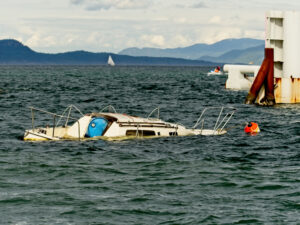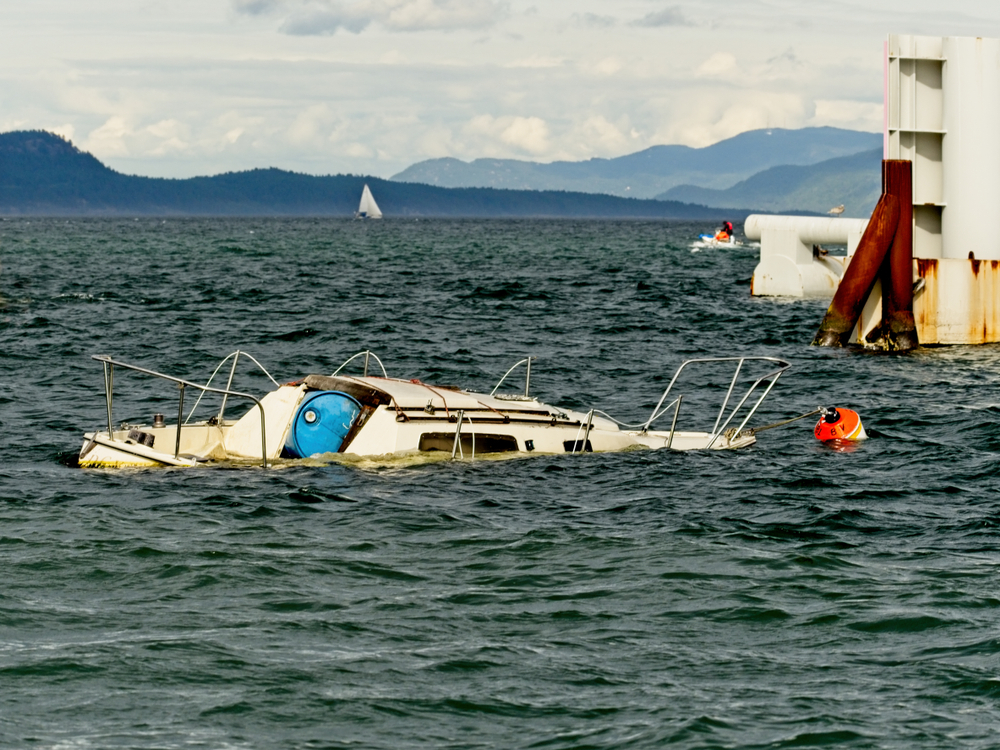Criminal Charges Pursued in Response to Deadly Boston Harbor Boat Crash
 A person who negligently operates a motor vehicle or watercraft can be subject to both civil and criminal liability for their conduct, allowing two or more court proceedings to proceed simultaneously in response to a single incident. Although the procedures, burdens of proof, and consequences of liability for criminal and civil claims against a negligent party may vary, both types of cases play a role in holding reckless or negligent people accountable for their actions. A recently published news report discusses criminal charges being brought against the operator of a watercraft that was involved in a fatal crash near Boston harbor this July.
A person who negligently operates a motor vehicle or watercraft can be subject to both civil and criminal liability for their conduct, allowing two or more court proceedings to proceed simultaneously in response to a single incident. Although the procedures, burdens of proof, and consequences of liability for criminal and civil claims against a negligent party may vary, both types of cases play a role in holding reckless or negligent people accountable for their actions. A recently published news report discusses criminal charges being brought against the operator of a watercraft that was involved in a fatal crash near Boston harbor this July.
According to the news report, the operator of a boat that crashed into a fixed navigational beacon and ultimately sunk is being charged with manslaughter as a result of the incident. These criminal charges are proceeding independently of any civil claims that may be brought by the family of the woman who drowned after the crash. Criminal and civil claims based on negligent conduct follow different procedures from each other.
A criminal complaint is brought on behalf of the government (usually a state or municipality) in response to alleged criminal conduct. Unlike a civil suit, a criminal conviction does not necessarily require any victim to suffer an injury, meaning that a reckless motorist can be convicted of a crime for their conduct even if nobody was injured during the incident. Criminal convictions, however, do require the government to prove their case beyond a reasonable doubt, which is a higher burden of proof than the standard needed to prove civil liability (civil liability must only be proven by the preponderance of the evidence). Because of this higher burden of proof, criminal convictions are generally more difficult to obtain than a civil judgment.
Both criminal charges and a civil complaint can result in financial compensation to the victim of the defendant’s negligence. Criminal charges allow for restitution to be ordered by the court as a condition of sentencing. Restitution payments can be enforced against the defendant by threats of incarceration, sometimes making it easier for a victim to collect restitution than a civil judgment. Civil judgments obtained through a negligence lawsuit will most often exceed an amount of restitution ordered by a criminal court, as they allow victims to collect damages for pain and suffering, emotional distress, attorneys fees, and other reasonable expenses. Because of this, it is best for accident victims to independently pursue a civil claim against a negligent party, instead of relying on criminal restitution to make themselves whole after being injured.
Have You Been Hurt in a Boating Accident?
If you or someone you love has been injured or killed as a result of an incident on the water, the Massachusetts boat accident attorneys at the Neumann Law Group can pursue your civil claim for damages. Our experienced Massachusetts accident lawyers understand how civil liability works, and we can help you obtain the settlement or judgment that you deserve. Our firm accepts Massachusetts boat accident cases, as well as other injury cases such as car accidents and premise liability claims. Contact our firm at 800-525-6386 to schedule a free consultation and discuss your claim today.



